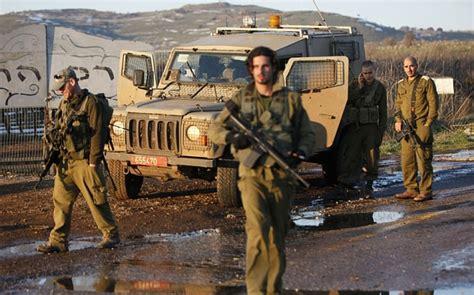
Israel claims to strike Hezbollah targets in Lebanon after attack kills 12 on Golan Heights football pitch
Israel launched swift retaliation as it blamed Hezbollah for a rocket attack which killed 12 children and young adults in the Golan Heights.
The strike was the deadliest attack on Israeli-held territory since the Hamas assault that sparked the war in Gaza.
Thousands of mourners attended funeral ceremonies on Sunday after a rocket hit a pitch where children were playing football in Majdal Shams – a Syrian village seized by Israel in 1967, occupied mainly by the Druze, an Arab minority who practise a form of Islam.
Hezbollah, the Iranian-backed Lebanese militant group, which has been trading regular cross-border fire with Israel since October, insisted it had “absolutely nothing to do with” the attack on Saturday, after previously saying it had struck Israeli military targets in the Golan Heights.
Israeli foreign minister Israel Katz raised the prospect of a full-scale conflict, telling Axios: “The Hezbollah attack today crossed all red lines, and the response will be accordingly. We are approaching the moment of an all-out war against Hezbollah and Lebanon.”
Israeli premier Benjamin Netanyahu vowed there would be retaliation immediately after the deadly strike and returned from his visit to the United States early, claiming Hezbollah would “pay a heavy price”.
The Israeli Air Force said on Sunday that its fighter jets had conducted airstrikes against a series of “terrorist targets” deep inside Lebanese territory, including “weapons caches and terrorist infrastructure” in seven different areas. It is unclear whether there were any casualties.
Two Lebanese security sources had previously said that Hezbollah was on high alert and had preemptively cleared out some key sites in both Lebanon’s south and the eastern Bekaa Valley in the event of a possible Israeli attack.
Israel and Hezbollah have frequently exchanged attacks over the past nine months, forcing tens of thousands of people in both Lebanon and Israel to leave their homes.
Israeli strikes have killed some 350 Hezbollah fighters in Lebanon and more than 100 civilians, including medics, children and journalists, Reuters reports.
Israel says the death toll among its civilians killed in Hezbollah attacks has risen to 23 since October, along with at least 17 soldiers.
But the deadly strike on Saturday threatened to tip the stand-off into a more dangerous phase, prompting United Nations officials to urge restraint from both sides – warning that further escalation “could ignite a wider conflagration that would engulf the entire region in a catastrophe beyond belief”.
Israel said the rocket was fired from an area north of the village of Chebaa in southern Lebanon, adding that Hezbollah was “unequivocally responsible”.
An Israeli military spokesperson told reporters that forensics showed the rocket was an Iranian-made Falaq-1. Hezbollah had announced that it had fired a Falaq-1 missile on Saturday, saying it had aimed at an Israeli military headquarters.
The Lebanese government has asked the US to urge restraint from Israel, with the US asking Lebanon’s government to pass the same message to Hezbollah, Lebanon’s foreign minister Abdallah Bou Habib said.
Highlighting the wider tensions in the region, Iran’s foreign ministry warned Israel against what it called any new “adventure” in Lebanon, while Syria’s foreign ministry said it held Israel “fully responsible for this dangerous escalation in the region” and said its accusations against Hezbollah were false.
Thousands of mourners have attended funeral ceremonies for those killed on Saturday in the Golan Heights – territory captured from Syria by Israel in the 1967 Middle East war and annexed in a move not recognised by most countries.
The Druze – who live on both sides of the line between Lebanon and Israel, and in Syria – make up more than half the 40,000-strong population of the Golan Heights, and large crowds of mourners, many in traditional high white and red headwear, surrounded the caskets as they were carried through the village.
“We are in difficult moments. A heavy tragedy, a dark day has come to Majdal Shams,” said Dolan Abu Saleh, head of the local council, in comments broadcast on Israeli television.
Source » msn.com





